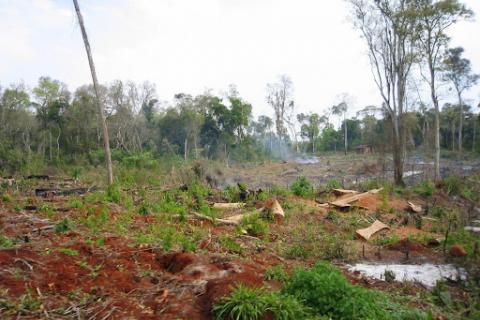The Land Portal published a new country portfolio for Argentina as part of our Country Insights initiative. The initiative seeks to expand knowledge about how countries govern their land, the challenges they face, and the innovative solutions they find to manage land tenure issues. Each portfolio comes with a detailed description of the land governance context and a collection of related blogs, news, publications, statistical datasets and more.
Argentina is the eighth largest country in the world with a mainland area that covers more than 2.7 million km2. Situated in South America bordered by Chile, Bolivia, Paraguay, Brazil and Uruguay, it has a population of 44 million people out of which 90% live in urban areas. Argentina is considered a middle emerging economy but its economic performance has been unstable and it has been affected by high inflation. This economic situation and an open policy to foreign investments have determined land governance in the country, which has favoured large-scale acquisition and investments with significant consequences for small producers and for the environment
The affluence of the foreign population was promoted by land settlement policies aiming to populate the vast Argentinian territory. This process involved the distribution of state land as well as the occupation of indigenous peoples’ land.
Argentina is considered a middle emerging economy but its economic performance has been unstable and it has been affected by high inflation - the annual inflation in 2011 was 12.,67% and in 2021 is expected to reach around 50%). In addition, Argentinian debt increased significantly in the last years moving from being around 154,000 billion USD in 2005 to more than 335,000 billion USD in 2021.
This economic situation and an open policy to foreign investments have determined land governance in the country, which has favoured large-scale acquisition and investments with significant consequences for small producers and for the environment such as deforestation. National investments have followed the same tendencies and had similar consequences.
Land legislation and regulations
The 1994 Constitution states that all inhabitants of the Nation have the rights to use and dispose of their property (Article 14). It also states that property is inviolable, and no inhabitant of the Nation may be deprived of it, except by virtue of a judgement based on law, and that expropriation for reasons of public utility must be qualified by law and previously compensated (Article 17).
Land governance in Argentina has been affected by two aspects: large extensions of land and the legislation to populate the territory, which was facilitated at the beginning of the 20th century by the expansion of the railroad network and, hence, the possibility of reaching unexplored areas. In 1940, the Colonization Law No. 12.636 included an agrarian plan to populate the interior of the country by making state and public banks-owned land available to be colonized.
- Read the full country profile and find other related information here.
- See all country portfolios here.
Photo credit: Deforestation in Argentina, photo by Benjamin Pender, Flickr, CC-BY-NC 2.0.

